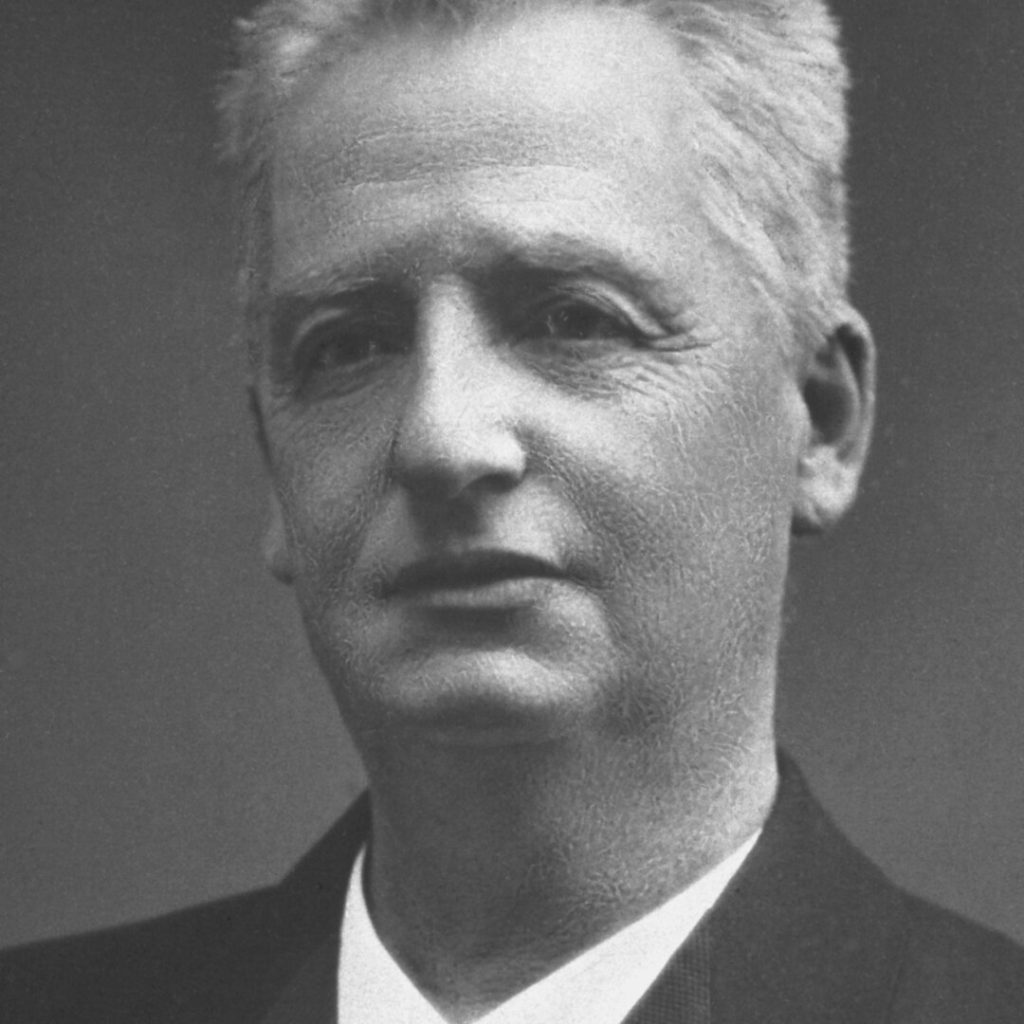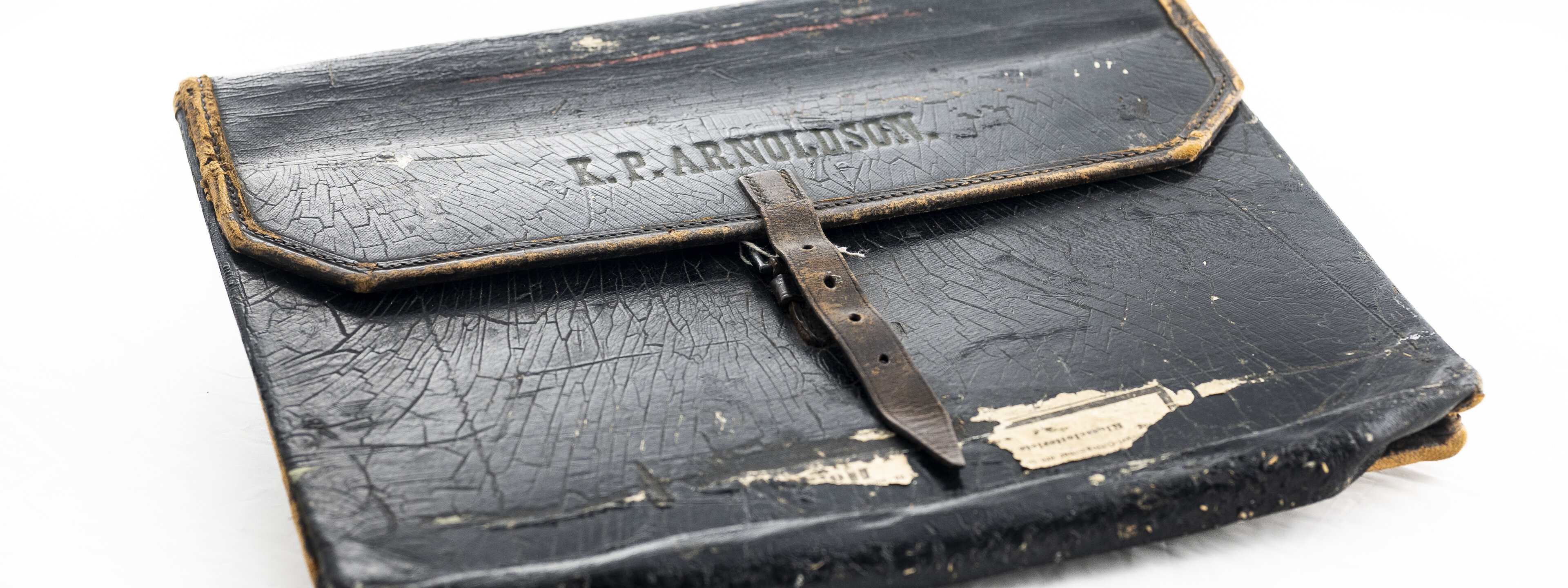Klas Pontus Arnoldson
Speed read
Klas Pontus Arnoldson was awarded the Nobel Peace Prize, jointly with Fredrik Bajer, for their long-time work for the cause of peace as politicians and peace society leaders.

Full name: Klas Pontus Arnoldson
Born: 27 October 1844, Gothenburg, Sweden
Died: 20 February 1916, Stockholm, Sweden
Date awarded: 10 December 1908
At peace with Norway
Firmly opposed to war, Klas Pontus Arnoldson was a pacifist, writer and agitator. He founded the Swedish Peace and Arbitration Society and served a term in the national assembly, where he argued that small nations such as Sweden should safeguard independence through neutrality. His peace efforts are primarily associated with the Swedish-Norwegian union, which lasted from 1814-1905. In 1895, Norway demanded equal status in the union, to which Sweden responded by threatening war. Arnoldson distributed the flyer ‘Peace with Norway’ and campaigned for full independence for Norway. He supported the Norwegian cause again in 1905, writing that: “We Swedes must leave the people of Norway in peace”. Arnoldson became unpopular in Sweden, and some even called him a traitor. But the Norwegian Nobel Committee rewarded his advocacy of peace and support for Norwegian autonomy.
| Pacifist From the Latin pacificus meaning peacemaking. A person who under no circumstance condones the use of violence; a peace advocate. Pacifists have been key figures in the international peace movement. |
He supported the Norwegian cause
In 1895, tensions between Norway and Sweden ran high. Norway wanted equal status in the union, primarily in the form of its own consular service and minister of foreign affairs. The Swedish government, fearing that the union would be lost if it complied with Norway’s demands, called for a revision of the terms of the union. Leading Swedish politicians spoke openly of war, prompting the Norwegian Storting to accept the revision. But some Swedes, including Arnoldson, supported Norway’s cause. At a popular meeting in Stockholm he called for full independence for Norway, and he subsequently distributed the flyer ‘At Peace with Norway’. The title became a slogan for Swedish peace advocates.
"Gold lay untouched in the streets. It tempted no one to sin. Humankind was good, its customs and laws were lenient and wise. Thus is it said in the ancient Norse sagas; and thus is it in the sagas of many other peoples. There was happiness throughout the world. But this paradise was lost to pretentiousness and war. Still, the hope remains that it may one day be recovered."
K.P. Arnoldson, Nobel Prize lecture, 10 December 1908.
The writer who worked for the Norwegian Nobel Committee
Arnoldson’s body of work is impressive. He wrote articles, fiction and non-fiction promoting the cause of peace. His major work was the 850-page book entitled The Hope of Centuries: A Book on World Peace, published in 1901. In it he recounted the past 50 years of peace work around the globe. Arnoldson’s earnings as an author were slim. He offered his services to the Norwegian Nobel Committee, which was pleased to accept. From 1903, he produced detailed quarterly reports on the state of the world, for which he was generously paid. The arrangement was kept secret because Arnoldson was a Swedish citizen, and the conflict regarding the union between Sweden and Norway was at its height.

“World referendum”
In his Nobel Lecture, Arnoldson launched the innovative concept of a worldwide referendum on peace. He proposed that men and women sign the following declaration: “I, the undersigned, seek to achieve peace on earth. It is my wish that all armed forces be eliminated. Instead, a joint force of law and order shall be created, to which each nation shall contribute according to the size of its population. This force shall be subject to a common Supreme Court for all the people. All states shall be obligated to refer international disputes to this court, and to comply with its judgments.”
Traitor?
In 1907 there was a rumour in Sweden that Arnoldson would receive the Nobel Peace Prize. Then Hälsingborg Dagblad wrote that it assumed that the Nobel Committee didn’t know of Arnoldson’s activities. The newspaper couldn’t believe that Norwegians would support a Swedish man “who by his actions stood on the border of treason, and who cannot be compared with expectations created by Passy, Gobat or Cremer. These men did not spit on their own country”. Arnoldson took the paper to court, but lost. The year after, he received the Nobel Peace Prize.
Learn more
Klas Pontus Arnoldson (October 27, 1844-February 20, 1916), the Swedish journalist, pacifist, and proponent of Scandinavian unity, was a man of humble origin ...
Disclaimer: Every effort has been made by the publisher to credit organisations and individuals with regard to the supply of photographs. Please notify the publishers regarding corrections.
Nobel Prizes and laureates
Six prizes were awarded for achievements that have conferred the greatest benefit to humankind. The 14 laureates' work and discoveries range from quantum tunnelling to promoting democratic rights.
See them all presented here.
